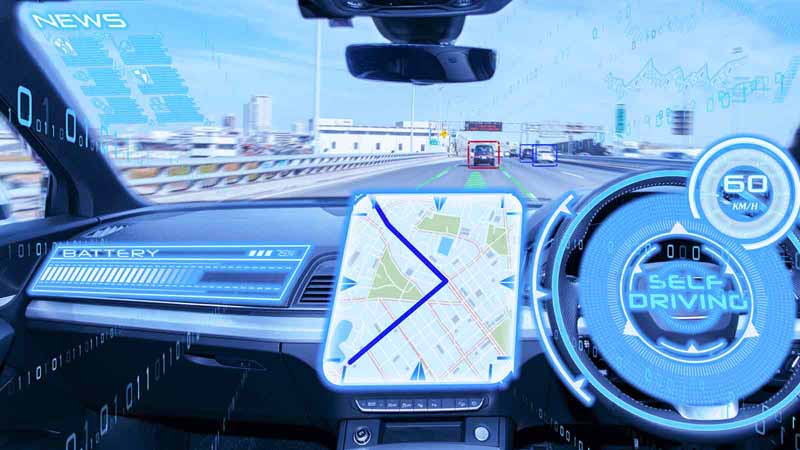The State of Electric and Autonomous Car Startups
By
Bruce Harpham
|
Friday, 08 January 2021
|
Startup,
Tech
The dream of driverless cars changed a great deal throughout the last year and will continue to do so in 2021. Uber sold its autonomous driving division, while other companies have closed down. Despite these setbacks, startups are continuing to work on self-driving car technology.

Robo-Taxi Startups
For years, self-driving car technology has struggled with liability and risk questions. This concern increased significantly due to crashes. In 2018, one of Uber's self-driving cars crashed. Instead of attempting to solve the problem of self-driving cars for individuals, a few startups are taking a different approach — robo-taxis.
Multiple startups are working on robo-taxi technology. In China, AutoX launched a self-driving taxi service in 2020 in Shanghai. The startup’s approach relies on augmenting existing vehicles. Furthermore, AutoX has used a variety of vehicles such as the Fiat Chrysler Pacifica. Alibaba, one of China's largest Internet firms, is a critical investor in AutoX. In addition to AutoX, other robo-taxi companies are active in China, such as WeRide.
In the United States, several companies are working on robo-taxis. For example, Voyage ($51 million in funding) aims to bring robo-taxi transportation to retirement communities. Initially, the company is running pilot projects in California and Florida.
Improving Safety With Navigation Technology
Directly building and operating self-driving cars is only one way that startups can ride the wave. Other startups are building components and technology that make self-driving vehicles safer.
Take Innoviz Technologies, which went public on December 11 (NASDAQ: INVZ) as an example. On its December 2020 (initial public offering) IPO, the company was valued at $1.4 billion. Innoviz Technologies produces lidar technology, which involves using lasers to measure distances between objects. The company's lidar is expected to add to vans, semi-trucks, and cars. BMW and GM-Cruise are both working with the company to improve navigation.
Find out more about GM-Cruise — GM and Cruise's Innovative Leap in Self-Driving Cars — No Steering Wheel or Pedals.
Earlier in 2020, another lidar startup, Luminar, went public, also using a SPAC merger vehicle. The announcement came shortly after the startup announced a partnership with Volvo.
Battery Tech Startups Made Major Advances in 2020
Navigation technology is excellent, but it is far from enough to create a successful, safe autonomous vehicle. Electric battery and vehicle startups are taking up the challenge by improving energy storage and management. Depending on your perspective, these startups can be considered part of the cleantech trend or autonomous vehicles.
In late 2020, QuantumScape made headlines by announcing a breakthrough in lithium battery technology. The company's technology would represent a significant efficiency gain over current batteries. QuantumScape's batteries can be charged to 80% capacity in 15 minutes. Compared to other electric vehicles that require hours to charge, QuantumScape's battery is nearly as fast as a gas refill. The startup also enjoys support from Microsoft co-founder Bill Gates.
QuantumScape has more than $1.5 billion in capital. The company also has a partnership with Volkswagen to add its technology to its vehicles. The European carmaker has also committed to mass producing the company's solid-state batteries. QuantumScape went public earlier in 2020 by leveraging a SPAC vehicle.
Colorado startup Solid Power is also working on solid-state batteries. The company's technology originated at the University of Colorado Boulder. The university spun off the technology to create Solid Power in 2014. Investors, such as Samsung Ventures, have provided $23 million in funding to Solid Power. Solid Power also enjoys backing from Ford Motor Company.
By improving electric charging time and efficiency, autonomous electric vehicles will become much more competitive over time with gas and diesel vehicles. If these startups continue to succeed in their technical progress and achieve mass-production scale through partnerships, Tesla's days as the king of electric vehicles may be numbered.
The Most Promising Regions For Autonomous Vehicles
Given the special risks involved in autonomous vehicles, startups have limited options to test their vehicles. So far, three regions have emerged as autonomous vehicle testing hotspots. California remains the number one destination for vehicle testing in the US, with more than a dozen companies currently running tests. The state is also facing competition from Arizona, which has recently welcomed startups such as Google-backed Waymo.
Outside the United States, China has emerged as a major hotbed for autonomous vehicles. More than seventy autonomous vehicles in operation have covered more than 500,000 miles of distance in Beijing alone.
About the Author
Bruce Harpham is an author and marketing consultant based in Canada. His first book "Project Managers At Work" shared real-world success lessons from NASA, Google, and other organizations. His articles have been published in CIO.com, InfoWorld, Canadian Business, and other organizations. Visit BruceHarpham.com for articles, interviews with tech leaders, and updates on future books.

